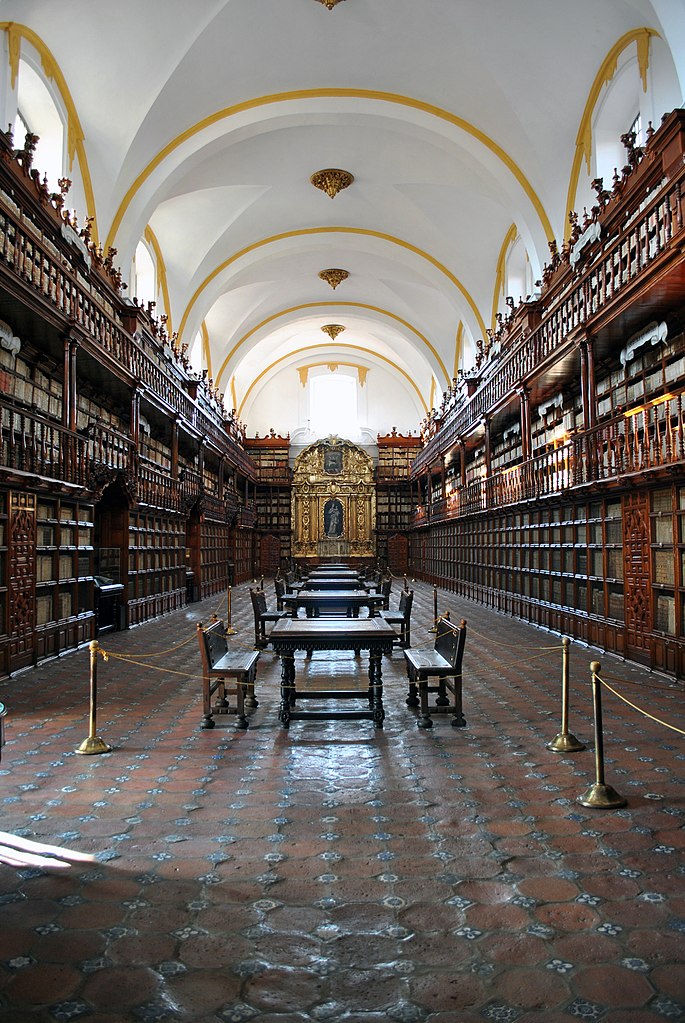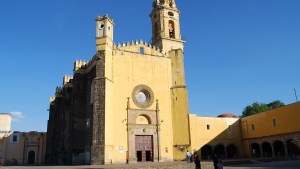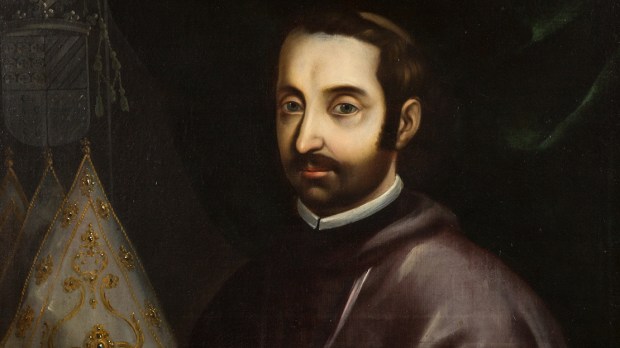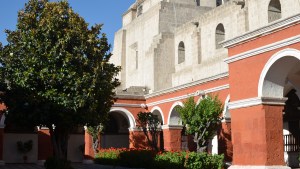Lenten Campaign 2025
This content is free of charge, as are all our articles.
Support us with a donation that is tax-deductible and enable us to continue to reach millions of readers.
The Biblioteca Palafoxiana, named after Bishop Juan de Palafox y Mendoza, is the oldest public library in the Americas, according to UNESCO. Located in the historic center of Puebla, Mexico, it was founded in 1646 when the bishop donated his private library (of approximately 5,000 volumes, mainly on natural sciences and philosophy) to the local Colegio San Juan (a religious school) on one condition: that the books would be made available to the general public. Arturo García Hernández’s article, Historia de una pasión por los libros y el conocimiento(“The story of a passion for books and knowledge”), quotes Palafox’s exact words: “it is very useful and convenient that there should be in this city and kingdom a public library, where all sorts of people will be able to study as they wish.”

Palafox’s biography is nothing short of extraordinary. Born in Navarra (Spain), Don Juan de Palafox y Mendoza was the natural son of the Marquis of Ariaza Jaime de Palafox (an Aragonese nobleman) and a woman de ilustre familia (“of an illustrious family”). According to José María Blanco White’s Cartas de España, Palafox’s mother tried to hide her pregnancy and fled to a nearby coastal town. After giving birth, she made the decision to drown the child in a river, to avoid scandal. The plan failed. She eventually joined a Carmelite monastery, and the child was raised by an old servant of the same house of Ariza, until his father took him in and sent him to the renowned universities of Alcalá de Henares and Salamanca.
Because of his noble origins and a series of favorable historical circumstances, Palafox quickly made an impressive career as a politician, administrator, and as a clergyman. In fact, after his ordination in 1629, he became the chaplain of the Holy Roman Empress Maria of Austria, the sister of King Philip IV of Spain, and accompanied her on her various trips around Europe.
Ten years later, Philip IV nominated him and Pope Urban VIII appointed him as Bishop of Puebla de los Ángeles in viceroyal Mexico. In this role, he distinguished himself from some of his predecessors by his efforts to protect the Native Americans, forbidding any methods of conversion other than persuasion. He was also an enthusiastic patron of the arts, and it was during his tenure in Puebla that the city became “the musical center of the New Spain” (that is, of Mexico). He was also the first editor of the works of Santa Teresa de Ávila.
Soon enough he became the interim Archbishop of Mexico, from 1640−1642, and also held political office: After being appointed inspector-general (visitador general) of the viceroyalty, he made a case against the presiding viceroy (accusing him of conspiracy) and became the interim Viceroy of New Spain from 10 June 1642 to 23 November 1642. After that, he lost a high-profile struggle with the Jesuits in New Spain and was recalled to Spain, appointed to the minor Diocese of Osma in Old Castile.
Although a case was opened for his beatification shortly after he died in 1659, he was not beatified until 2011.



